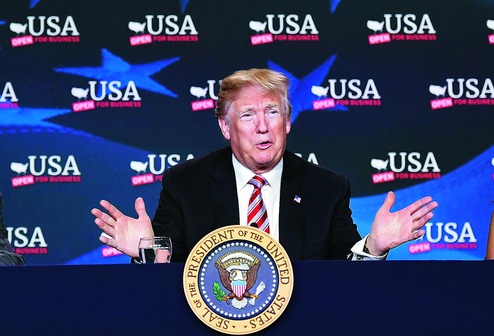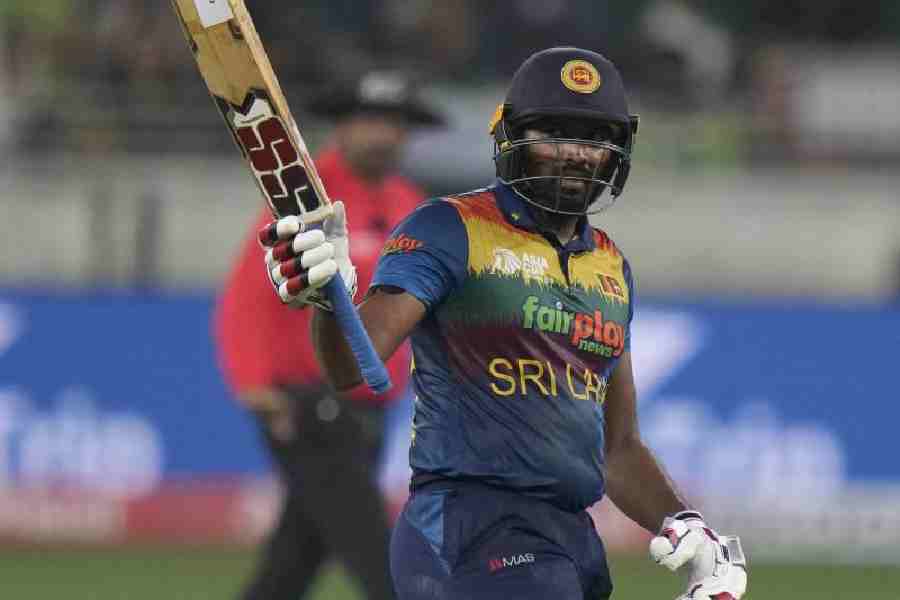
Damascus/The Hague: The US accused Russia on Monday of blocking international inspectors from reaching the site of a suspected poison gas attack in Syria and said Russians or Syrians may have tampered with evidence on the ground.
Moscow denied the charge and blamed delays on retaliatory US-led missile strikes on Syria at the weekend.
In the fraught aftermath of the suspected attack in Douma and the west's response, Washington also prepared to increase pressure on Russia, Syrian President Bashar al-Assad's main ally, with new economic sanctions. EU foreign ministers threatened similar measures.
And in London and Paris, British Prime Minister Theresa May and French President Emmanuel Macron faced criticism from political opponents over their decisions to take part in the air strikes against Syria.
Syria and Russia deny unleashing poison gas on April 7 during their offensive on Douma, which ended with the recapture of the town that had been the last rebel stronghold near the capital Damascus.
Relief organisations say dozens of men, women and children were killed. Footage of young victims foaming at the mouth and weeping in agony has thrust Syria's civil war - in which half a million people have been killed in the past seven years - to the forefront of world concern again.
Inspectors from the Hague-based Organisation for the Prohibition of Chemical Weapons (OPCW) travelled to Syria last week to inspect the site, but have yet to gain access to Douma, which is now under government control after the rebels withdrew.
"It is our understanding the Russians may have visited the attack site," US ambassador Kenneth Ward said at an OPCW meeting in The Hague on Monday.
"It is our concern that they may have tampered with it with the intent of thwarting the efforts of the OPCW Fact-Finding Mission to conduct an effective investigation," he said. His comments at the closed-door meeting were obtained by Reuters.
Russian foreign minister Sergei Lavrov denied that Moscow had interfered with any evidence. "I can guarantee that Russia has not tampered with the site," he told the BBC.
Britain's delegation to the OPCW accused Russia and the Assad government of stopping inspectors from reaching Douma. "Unfettered access is essential," the British delegation said in a statement."Russia and Syria must cooperate."
The team aims to collect samples, interview witnesses and document evidence to determine whether banned toxic munitions were used, although it is not permitted to assign blame for the attack.
Britain's ambassador Peter Wilson said in The Hague that the UN had cleared the inspectors to go but they had been unable to reach Douma because Syria and Russia had been unable to guarantee their safety.
Moscow blamed the delay on the air strikes, in which the US, France and Britain targeted what the Pentagon said were three chemical weapons facilities.
"We called for an objective investigation. This was at the very beginning after this information [of the attack] appeared. Therefore allegations of this towards Russia are groundless," Kremlin spokesman Dmitry Peskov said.
Russia's defence ministry later said the US and its allies had hit military targets at the weekend and not just research facilities, Interfax news agency reported. The Syrian military destroyed 71 out of 103 cruise missiles detected in Syrian airspace, RIA news agency quoted the defence ministry as saying.
US envoy Ward also condemned the Syrian government for what he called its "reign of chemical terror". Reuters










